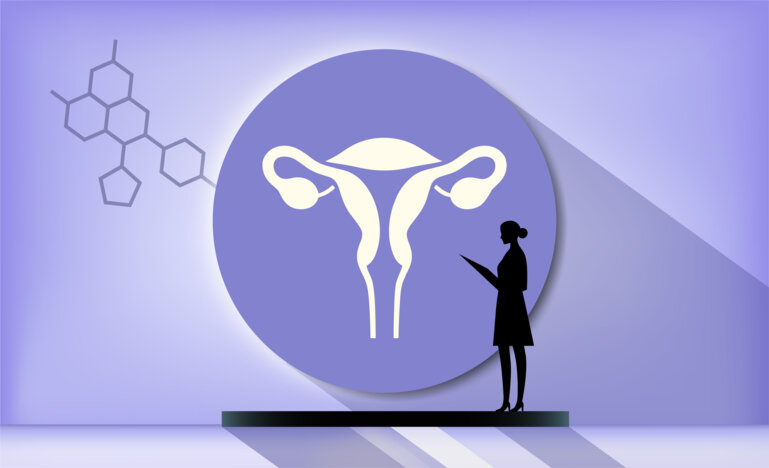A multitude of new agents under development could finally offer meaningful treatment options to a patient population with high unmet need
Antibody-drug conjugates (ADCs) are emerging as a highly promising area of clinical research in ovarian cancer, with results rarely seen in this deadly disease that is typically diagnosed in the advanced stages and where eventual relapse and resistance to standard treatment with platinum-based chemotherapy and existing therapeutic agents are the rule rather than the exception. The first ADCs are ready for routine use – provided that regulators ensure timely access for our patients.
Acting like a Trojan horse, the structure of ADCs lets them bind to a particular tumour associated antigen, a receptor on the cell surface, and infiltrate specifically those tumour cells that express this antigen to deliver their drug payload, a potent chemotherapy agent, directly inside the cells. In addition to this targeted mechanism of action that preserves healthy tissue, ADCs have also been shown to have a bystander effect whereby the chemotherapy agent is able to leak into neighbouring cancer cells even if these do not express the same antigen, thus eliminating more of the tumour.
In the first phase III trial of an ADC in ovarian cancer, mirvetuximab soravtansine, a first-in-class agent targeting folate receptor α (FRα), achieved high response rates and significantly improved overall survival compared to the standard of care in late-stage, platinum-resistant disease (N Engl J Med 2023 Dec 6;389:2162-2174). This milestone earned the agent full approval in the USA, where it had already been available to patients under an accelerated approval since late 2022. In light of the impressive results, including in patients who received modified doses, research is now moving to introduce the therapy at earlier stages of the treatment journey in an attempt to further improve outcomes.
A similar story is developing with another ADC targeting human epidermal growth factor receptor 2 (HER2), trastuzumab deruxtecan. Based on a phase II tumour-agnostic trial (J Clin Oncol 2024 Jan;42(1):47-58), the FDA recently granted the medicine accelerated approval for all solid tumours with high HER2 3+ expression that have progressed on conventional therapies. Here, too, the overall response rate and the duration of response that could be achieved in the cohort of recurrent ovarian cancer patients heavily pretreated are particularly encouraging.
Taken together, the impact of these therapies could be transformative for our field, as an estimated 35% of all ovarian cancers express high levels of FRα and another approximately 25% are thought to overexpress HER2. A plethora of investigational ADCs targeting other tumour antigens are also showing promising signs of activity, including an agent targeting trophoblast cell surface antigen 2 (TROP2) that is set to enter clinical testing as first-line therapy in the near future. A dedicated educational session at the ESMO Gynaecological Cancers Congress 2024 (Florence, 20-22 June 2024) will offer the opportunity for a comprehensive review of the current landscape.
What is already clear today is that better prospects are finally in sight for the 50% of ovarian cancer patients whose tumours do not exhibit a homologous recombination deficiency (HRD) and who, unable to benefit meaningfully from the last wave of therapeutic innovation with PARP inhibitors, currently face a poorer prognosis than their HRD-positive peers. Unfortunately, with no ADCs approved for ovarian cancer in Europe to date, too many of these women are still waiting to gain access to what could be their only good treatment option.






